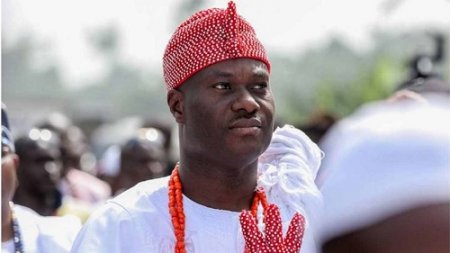Africa is home to over 54 countries with over 3000 languages being spoken across the continent. Africa may be a democratic continent with no doubt, but it is worthy to note that Africa is still the land of Kings. There are various traditional rulers who are not only popular but are also internationally recognised by the government. A significant number of these rulers are formally recognized by state institutions and as a consequence, many of them receive generous stipends and allowances from the government. Here are the top five royal families in Africa.
The King’s net worth has increased significantly from $2.4 billion in 2014 to $5.7 billion in 2015, Forbes magazine’s report revealed he has a 40 per cent stake in Société Nationale D’Investissement (SNI), a holding company that has controlling stakes in the country’s largest bank, Attijariwafa and mining company Managem Group. Forbes said this considerable growth of the Moroccan monarch ’s fortune is due to new information about the value of SNI’s assets. Presently, the King is worth $2.5 Billion, which makes him the first on our list.
Oba is the Yoruba name for King. Oba Obateru is recognized as the richest king in Nigeria. He is the Olugbo of Ugbo land, the community in Ondo State which is distinguished by the presence of oil deposits. His net worth is estimated to be over $300 million. He founded Obat Oil, an oil trading company which is one of the largest enterprises in its segment. This project started in 1981 with a single gas station used by his family and the neighbouring community. The Oba has more than 50 stations throughout the country.
According to the Forbes 2009 list of the World’s 15 Richest Royals, King Mswati’s net worth $200 million. He is Africa’s last absolute monarch assumed throne at age 18. He maintained a tight grip on the opposition with a constitution that bans political parties (though the government insists political parties are free to operate). King Mswati is often criticized for lavish spending; his 15 wives reportedly went on a $6 million shopping spree in summer 2009. Meanwhile, Swaziland faces a government receipt shortfall, 69% of the population lives below the poverty line, 40% are unemployed and about one-fourth of the nation’s sexually active population is HIV-positive. This brings us to the reality of poor leadership skill among notable African leaders. Only a few have shown exemplary qualities in this aspect.
The King’s net worth has increased significantly from $2.4 billion in 2014 to $5.7 billion in 2015, Forbes magazine’s report revealed he has a 40 per cent stake in Société Nationale D’Investissement (SNI), a holding company that has controlling stakes in the country’s largest bank, Attijariwafa and mining company Managem Group. Forbes said this considerable growth of the Moroccan monarch ’s fortune is due to new information about the value of SNI’s assets. Presently, the King is worth $2.5 Billion, which makes him the first on our list.
- Oba Obateru Akinrutan, Ugbo Land, Nigeria
Oba is the Yoruba name for King. Oba Obateru is recognized as the richest king in Nigeria. He is the Olugbo of Ugbo land, the community in Ondo State which is distinguished by the presence of oil deposits. His net worth is estimated to be over $300 million. He founded Obat Oil, an oil trading company which is one of the largest enterprises in its segment. This project started in 1981 with a single gas station used by his family and the neighbouring community. The Oba has more than 50 stations throughout the country.
- King Mswati III Of Swaziland
According to the Forbes 2009 list of the World’s 15 Richest Royals, King Mswati’s net worth $200 million. He is Africa’s last absolute monarch assumed throne at age 18. He maintained a tight grip on the opposition with a constitution that bans political parties (though the government insists political parties are free to operate). King Mswati is often criticized for lavish spending; his 15 wives reportedly went on a $6 million shopping spree in summer 2009. Meanwhile, Swaziland faces a government receipt shortfall, 69% of the population lives below the poverty line, 40% are unemployed and about one-fourth of the nation’s sexually active population is HIV-positive. This brings us to the reality of poor leadership skill among notable African leaders. Only a few have shown exemplary qualities in this aspect.
- Oba Okunade Sijuwade, Ile-Ife, Nigeria
- Otumfuo Osei Tutu II, Ashanti, Ghana


